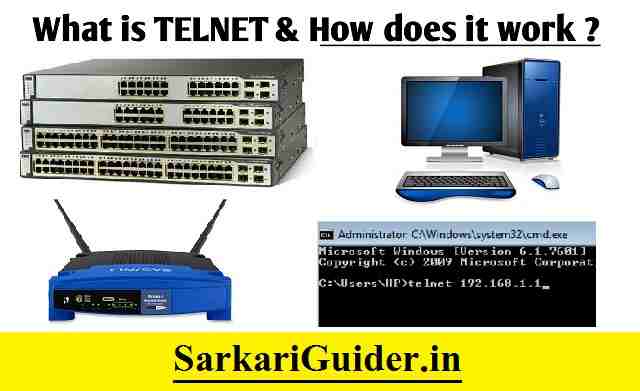Telnet : Definition & How It Works

What is Telnet
What is Telnet? – Telnet is an older Internet utility that lets you log on to TELNET remote computer systems. Basically, a Telnet program gives you a character-based terminal window on another system. You get a login prompt on that system. If you’re permitted access, you can work on that system, just as you would if you were sitting next to it.
Traditionally, Telnet has been used by people who have logins on remote systems and want to do serious work there. But Telnet has some additional uses that are more relevant to people who are exploring the internet. Most notably, you can use Telnet to connect to thousands of catalogs at libraries around the world. This capability is wonderful for anyone doing serious research. Imagine being able to find out which books in your particular discipline are available at a number of specialty libraries in remote locations – all while you plug away at your desk.
How Telnet Works
The computer, through which you want to connect to a remote server, is the client computer.
To connect to remote server via Telnet, following process happens :
(i) Using telnet client software on your computer (the Telnet client), your computer makes a connection to a telnet server (i.e., the remote host) over Internet (which is a TCP/IP network).
(ii) Once your telnet client establishes a connection to the remote host, your client becomes a virtual terminal, allowing you to communicate with the remote host from your computer.
(iii) Now you can type Telnet based access commands on the Telnet client computer, which are then sent to the remote Telnet server and the Telnet server acts accordingly.
In most cases, you’ll need to log into the remote host, which requires that you have an account on that system. Occasionally, you can log in as guest or public without having an account.
Important Links
William Wordsworth as a poet of Nature
Metaphysical Poetry: Definition, Characteristics and John Donne as a Metaphysical Poet
John Donne as a Metaphysical Poet
Shakespeare’s Sonnet 116: (explained in hindi)
What is poetry? What are its main characteristics?
Debate- Meaning, Advantage & Limitations of Debate
Sarojini Naidu (1879-1949) Biography, Quotes, & Poem Indian Weavers
Charles Mackay: Poems Sympathy, summary & Quotes – Biography
William Shakespeare – Quotes, Plays & Wife – Biography
Ralph Waldo Emerson – Poems, Quotes & Books- Biography
What is a lyric and what are its main forms?




